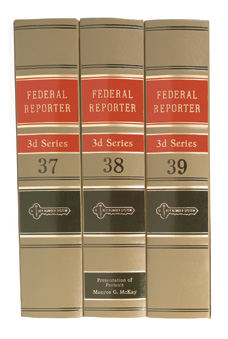 |
Federal Public Defender for the District of Columbia 625 Indiana AVE nw wASHINGTON d.c. 202 208-7500 |
|
|
||||||||||||||||||||||||||||||||||||||||||||||||||||||||||||||||||||||
| DOJ Publications and Memos | |
| DOJ Electronic Evidence and Search and Seizure Legal Resources | |
| US Attorneys Manual | |
| US Attorneys Office Bulletin | |
| BOP Drug Treatment Center Chart 2006 | |
| Naturalization Chart 2004 | |
| Training Material | The BOP: Bureau of Prisons Issues Presentation by criminal defense attorney, Todd Bussert.
Information
in this presentation was in part from the book "Defending a Federal
Criminal Case" , for more info please visit
http://www.fdsdi.com/publications.html website".
|
Office of Defender Services/Training Branch Administrative Office of the United States Courts
The Federal Public Defenders for the District of Oregon Search and Seizure Outline. Oct 2009
|
|
| The Neal Jaffee DC Opinion Summary | |
2011 May to June 2011 July to August |
|
| Blogs | |
| Sentencing Law and Policy | |
| Appellate Litigation Blog | |
| Computer Forensics | |
| Find out IP addresses, Who owns a website, etc... | |
| International Journal of Digital Evidence | |
| E-Evidence Information Center | |
| Sentencing | |
An Introduction to Federal Guideline Sentencing (13th ed. 2011) |
|
| Selected Firearms Offenses - Cheat Sheet | |
| Supervised Release (DC) Table | |
| Firearms Offenses - Sentencing Enhancement based on prior conviction | |
| Federal Sentencing Grid | |
| Anomaly in the Crack Guidelines by Amy Baron-Evans Sentencing Resource Counsel Federal Public and Community Defenders. See their Sentencing Resource page |
|
| Crack Changes | |
Commission Clarifies Meaning of USSG §1B1.10(b)(2)(B): Clients Who Received Non-Guideline Sentence Under Booker Still Eligible for Crack Retroactivity Sentence Reduction - 2008
The amended guideline retroactivity policy statement, USSG §1B1.10, states at §1B1.10(b)(2)(B) that “if the original term of imprisonment constituted a non-guideline sentence determined pursuant to 18 U.S.C. § 3553(a) and United States v. Booker, 543 U.S. 220 (2005), a further reduction generally would not be appropriate.” This appears to suggest that clients are not entitled to relief under the amendment if they received a non-guideline sentence under Booker. However, Sentencing Resource Counsel, as well as many Federal Defenders, report that at the Crack Summits in Charlotte and St. Louis, and at the Defender conference in Seattle, the Commission explained that §1B1.10(b)(2)(B) applies only if the original sentencing judge did not consider the guidelines at all. This acknowledgment is good news because there should be no instances in which judges ignored the guidelines. A sentencing judge must consider the guidelines, even if she then rejects them as unsound policy, and to do otherwise is reversible error. Gall v. United States, 128 S.Ct. 586, 596 (2007); Kimbrough v. United States, 128 S.Ct. 558, 564, 570 (2007); Rita v. United States, 127 S.Ct. 2456, 2465, 2468 (2007); United States v. Booker, 543 U.S. 220, 245-46 (2005). |
|
| Admendments to Guidelines (opens fd.org) | |
| Deconstructing the Guidelines is a special project undertaken by National Federal Defender Sentencing Resource Counsel. The papers in this section critically examine the history and basis of the most frequently encountered provisions of the U.S. Sentencing Guidelines. Judges are now invited to consider arguments that the guideline itself fails properly to reflect § 3553(a) considerations, reflects an unsound judgment, does not treat defendant characteristics in the proper way, or that a different sentence is appropriate regardless. Rita v. United States , 127 S. Ct. 2456, 2465, 2468 (2007). Judges "may vary [from Guidelines ranges] based solely on policy considerations, including disagreements with the Guidelines," Kimbrough v. United States, 128 S. Ct. 558, 570 (2007) (internal quotation marks omitted), and when they do, the courts of appeals may not "grant greater factfinding leeway to [the Commission] than to [the] district judge." Rita , 127 S. Ct. at 2463. Whatever respect a guideline may deserve depends on whether the Commission acted in "the exercise of its characteristic institutional role." Kimbrough, 128 S. Ct. at 575. This role has two basic components: (1) reliance on empirical evidence of pre-guidelines sentencing practice, and (2) review and revision in light of judicial decisions, sentencing data, and comments from participants and experts in the field. Rita, 127 S. Ct. at 2464-65. "Notably, not all of the Guidelines are tied to this empirical evidence." Gall v. United States, 128 S. Ct. 586, 594 n.2 (2007). When a guideline is not the product of "empirical data and national experience," it is not an abuse of discretion to conclude that it fails to achieve the § 3553(a)'s purposes, even in "a mine-run case." Kimbrough, 128 S. Ct. at 575. | |
| Spanish | |
| Translation of legal terms/words used in Federal Court | |
Back to top
 The Law Library
The Law Library